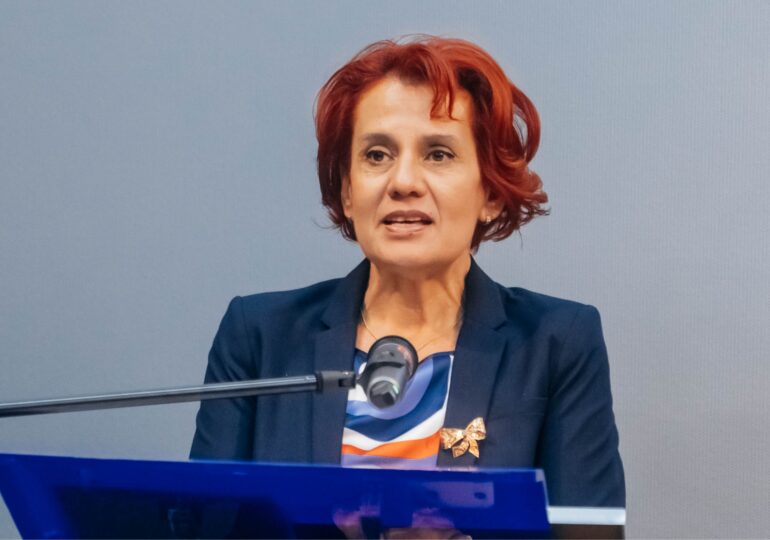The one-day storm in Ploiești ended after less than 24 hours at the High Court of Cassation and Justice (ÎCCJ), which made a predictable decision in accordance with the law and its own case law.
The court cannot annul/suspend a jurisdictional decision of the Constitutional Court of Romania (CCR). In other words, the judge from the Ploiești Court of Appeal did not have the legal competence to rule on CCR Decision No. 32 annulling the elections.
This does not mean that the issue has disappeared, quite the contrary. For at least two reasons.
1. The Boundless Power of the CCR
If the premise on which the judge relied to establish his jurisdiction, namely that Decision 32 would be an administrative act, is incorrect, hence the admission of the appeal, not all arguments put forth in the reasoning are equal.
Some of the aspects that Judge Alexandru Vasile invokes are at least worth analyzing. He believes that the CCR has exceeded its powers both through self-referral, which is not provided for by law, and through the annulment decision itself. That it did not meet legal deadlines and did not have clear evidence when it annulled the elections.
There are lingering questions haunting Romanian society since December for which there has not been a consistent answer until now.
Sure, the Russians, hybrid warfare, Tik Tok, which we now see all candidates flocking to, dubious money, influencers. They all existed. But several key questions remain unanswered to this day. Those from the reasoning.
On the other hand, it is a truth, not since December, but for years, that we have an abusive Constitutional Court precisely because there is no legal recourse against its decisions. Absolute power corrupts absolutely.
The simple fact that the judge from Ploiești did not have the right to rule, thus committing an abuse himself, does not mean that his entire reasoning is wrong.
Our biggest problem is not that a judge went off the rails. There was a solution for his misstep within 24 hours. The biggest problem is that for years we have had an abusive Constitutional Court, whose decisions cannot be legally censored.
Perhaps Decision 32 was legally correct, but the issue is that legally this cannot be judged. And this absolute power has allowed the CCR to extend its power over the panels and decisions of the High Court of Cassation and Justice, over certain legal provisions for which it had not been legally notified, over the dismissal of the head of the National Anticorruption Directorate (DNA), even to legislate, etc.
And because all of these exist, suspicion will persist, conspiracy theories, the divide.
2. Politicization
Certainly, behind the decision in Ploiești there is a political logic. The courts of appeal have been inundated with requests from private individuals encouraged and advised publicly on social networks by former judges sympathetic to Georgescu whom we continue to see, including on Realitatea TV.
In such a flood, it is likely that at some point, one of the actions would reach a "back for round two" judge. Or perhaps just exasperated by the long series of abuses through which the CCR systematically humiliated judges.
The swift reaction of the ÎCCJ and the investigation of Judge Alexandru Vasile are strong signals to prevent such deviations from occurring again.
But part of the harm has already been done. Because the decision and reasoning of the judge from Ploiești have rubbed salt on an unhealed wound and may lead to an even greater mobilization of the extremist or at least anti-system wing, which is encouraged to see the speed of the ÎCCJ as a show of force by the system.
Some candidates, I refuse to name any, have fallen into the trap of unacceptable and extremely profitable politicization for those who challenge the rule of law.
There were candidates who felt the need to praise the decision in Ploiești, to declare the judge a hero, or, conversely, to qualify his decision as incorrect. Likewise, the Minister of Justice.
Both fundamentally wrong! In a state of law, a politician, whether Minister of Justice, or even more so, a candidate for the highest office in the state, has no right to comment on the correctness of a court decision, especially one that is not final and is subject to review.
This is how those who declared all convicted criminals in justice as victims and paraded them to court dates operated. If we now accept that a politician can qualify a court decision, it means that the defenders of criminals were also in the right.
And the defenders of criminals, in the name of the alleged incorrectness of court decisions, plotted the assault of the CCR on the laws and courts of Romania with the effects we know.
The principle is not that what suits us is good and what doesn't is bad. The principle is unique, and its violation is equally wrong regardless of the interest.
And in the case of a presidential candidate who pronounces on a court decision, especially one that is not final, what is the relationship to the rule of law, to the balance of powers in the state?

